Current Lab Members

Nadia obtained a B.A. in Molecular and Cellular Biology from U.C. Berkeley, and a Ph.D. from Harvard Medical School where she characterized T cell responses to the bacterium Chlamydia trachomatis in a mouse infection model. She then conducted a postdoctoral fellowship at the J. David Gladstone Institutes, where she identified factors in human seminal plasma that potently enhance HIV infection and studied their mechanism of action. Currently, her lab uses ex vivo tissue models and high-parameter single-cell analysis approaches to study HIV transmission and persistence, T cell immunity to SARS-CoV-2, and reproductive health. Nadia is a member of UCSF's AIDS Research Institute (ARI), Center for Reproductive Sciences (CRS), ImmunoX, and the Biomedical Sciences (BMS) graduate program. Outside the lab, Nadia enjoys the arts, being active, and traveling to faraway places.
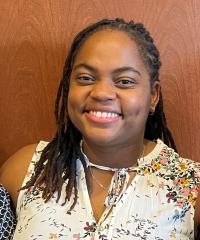
Alicer obtained a B.S in Biology with a minor in French, followed by a Ph.D. in Infectious Diseases, from the University of Georgia. During her doctoral studies in the lab of Dr. Julie Moore, she investigated the crosstalk between inflammation, coagulation, and oxidative stress in murine models of placental malaria and using samples from endemic women. This research led to discovery of new therapeutic targets to improve negative pregnancy outcomes due to malaria infection. She has a strong interest in women’s health, and has served numerous leadership roles to promote diversity and equity in science. Alicer joined the Roan lab in 2023, and is characterizing HIV-specific T cell responses in people living with HIV, and endometrial immune responses in the context of infectious diseases and infertility. Outside the lab, Alicer is a self-proclaimed foodie, and enjoys traveling and learning different languages.
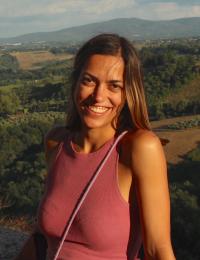
Marta obtained her B.S in Biology from the Universitat Autònoma de Barcelona (Spain) and a M.Sc. in Infectious Diseases and Public Health from Universidad de Alcalá (Spain). She then pursued her PhD under the supervision of Dr. Enrique Martín Gayo at the Immunology Department from Hospital Universitario de La Princesa, Universidad Autónoma de Madrid (Spain), where she identified specific immunometabolic patterns of dysfunctional CD8+ T cells in ART-suppressed people with HIV, and pursued studies to tailor innate immune cells to boost the functions of HIV-specific CD8+ T cells for HIV prevention and therapy. Marta joined the Roan lab in 2023, where she is using different multiomics single-cell approaches to better understand mechanisms of HIV persistence and control. Outside the lab, Marta enjoys yoga practice, singing, photography and travelling, always accompanied with her friends and family.

Ifeanyi Jude Ezeonwumelu obtained an M.Sc. in Forensic Sciences from the University of Lincoln (UK), Instituto Universitario Egas Moniz (Portugal), and the Universidad de Córdoba (Spain), all under an Erasmus Mundus scholarship. This was then followed by a PhD in the lab of Dr. Ester Ballana at the AIDS research institute at the Autonomous University of Barcelona (Spain). His prior research included phylogenetic studies of HIV transmission, as well as molecular epidemiology of viral epidemics including hepatitis viruses. His doctoral thesis work focused on characterizing novel innate immunomodulatory strategies to tackle HIV persistence. In 2023, Ifeanyi joined the Roan lab, where he will be using single-cell “omics” approaches to characterize the molecular signatures of cells persistently infected with HIV with the goal of developing novel strategies to target cells. Outside of the lab, Ifeanyi enjoys walking, hiking, dancing, and singing. His happy space is the kitchen - cooking delectable spicy meals.
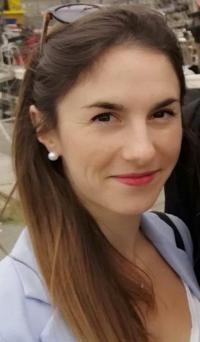
Julie obtained a M.S in Cellular biology from University of Rennes. This was followed by an internship in the lab of Dr. Riteau at the University of Lyon 1 in France, where she studied how the Annexin-1 protein helps spreading Influenza virus infection. To deepen her background in virology, she started conducted a PhD at the IRSET Institute, in Rennes, under the supervision of Dr. Nathalie Dejucq-Rainsford. Her research focused on deciphering the mechanisms of transmigration of infected seminal leukocytes across the colorectal mucosa, and the modulatory effect of the seminal plasma on this transmission. She also worked on the phenotypical characterization of seminal leukocytes. In 2019, she joined the Roan lab where she will be working on using single-cell approaches to characterize cells productively- and latently-infected with HIV in different tissues. Outside the lab, Julie enjoys travelling around the world and discovering new places, spending some time with friends and family, and sports to clear her mind!
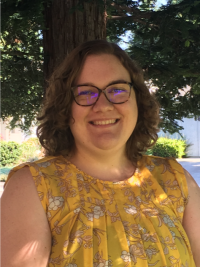
Ashley obtained a B.S. from Humboldt State University, where she majored in Biology with an emphasis in Cellular and Molecular Biology. This was followed by an internship sponsored by the California Institute for Regenerative Medicine (CIRM) in the lab of Dr. Linda Giudice at UCSF, studying human endometrial mesenchymal stem cells and endometriosis. She then obtained a Ph.D. from Rutgers University where she tested the lactocrine hypothesis for maternal programming of postnatal uterine development and adult endometrial function in pigs. In 2018, she joined the Roan lab, where she is using mass cytometry to characterize the molecular basis of intrinsic cellular permissivity of CD4+ T cells to HIV in the context of the restrictive or permissive environment of the female reproductive tract. Outside the lab, Ashley enjoys reading and spending time with friends and family.
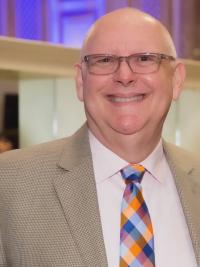
Robin majored in Journalism and minored in English at the University of Texas at Arlington, and moved to San Francisco in 1993 from Dallas, Texas, where he was Executive Assistant to the Medical Director of the Dallas Psychiatric Intensive Care Unit. In Dallas, Robin also worked at the Oak Lawn Counseling Center, a non-profit organization whose mission was to serve the LGBT+ community. From 1998-2022, Robin supported Dr. Warner Greene at Gladstone. Currently, Robin provides administrative support to Drs. Nadia Roan and Jennifer Doudna and members of their research teams at Gladstone. Beginning in 1998, Robin frequently participated as a walker in the annual San Francisco AIDS Walk fundraiser. In 2018, he raised $1,525.00 thanks to the generosity of friends and colleagues, and estimates that over the past 24 years, he has raised ~$50,000 for this cause. When not working, Robin enjoys trips to Monterey Bay, Big Sur, and western Marin and Sonoma counties. Favorite pastimes include cooking and amateur photography.

Xiaoyu obtained a B.S. in Biotechnology from Sichuan University in China, and a PhD from the University of North Texas Health Science Center where she studied the HIV Nef protein and HIV latency in astrocytes in the lab of Dr. Johnny He. After graduation, she joined Dr. Warner Greene’s lab at Gladstone Institutes and conducted her postdoctoral fellowship studying HIV pathogenesis in tissue CD4+ T cells. In 2022, she joined the Roan lab as a staff research scientist, where she is using single cell multiomics technologies and computational approaches to characterize HIV reservoir cells and understand HIV persistence. Outside the lab, Xiaoyu is a digital drawing artist and plant lover. She also enjoys cooking, hiking, and traveling (especially in search of good food).

Tongcui obtained a M.S. in Biochemistry and Molecular Biology from Shantou University in China, and a Ph.D. from Wuhan University in China where she identified several naturally occurring anti-HIV products, including Soybean-derived Bowman-Birk Inhibitor and Kunitz Inhibitor. She then conducted a postdoctoral fellowship in the lab of Dr. Jianxin You at University of Pennsylvania, where she studied host immune responses to the tumorigenic DNA virus, Merkel cell polyomavirus (MCPyV), and how DNA viruses modulate host immune response to achieve latent infection. She then joined the Roan lab, where she is identifying biomarkers of HIV reservoir size and time-to-rebound during analytical treatment interruption (ATI). Outside of the lab, Tongcui enjoys traveling, being active and spending time with family.

Sophia obtained a B.S. in Biochemistry and a minor in Spanish from Beloit College in 2019. During her undergraduate studies abroad in Ecuador, she conducted research in the lab of Dr. Andres Caicedo where she analyzed the regenerative effects of artificial mitochondria transfer on UVR-damaged PBMCs. Upon graduating, she joined the Clinical Immunology team at Vir Biotechnology to characterize immune phenotypes of HBV+ patient serological samples and optimize PBMC isolation procedures for SARS-CoV2, HBV and HIV Phase II/III vaccine clinical trial samples. Her passion for women's health advocacy and interest in infectious diseases led her to join the Roan lab in 2023, where she aims to use CyTOF and single cell-sequencing to characterize HIV-infected cells, particularly from mucosal tissues including the female reproductive tract. When she is not in the lab, you can find her in the pottery studio, knitting, or hosting dinner parties with friends.
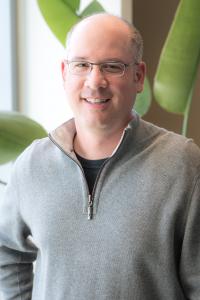
Jason obtained a B.A. from U.C. Santa Barbara, where he majored in Biochemistry and Molecular Biology. He conducted research in the Vaccines Department at Chiron, corp. (now Novartis, Inc) from 1990 to 2000, studying adjuvant formulations and vaccine candidates for herpesvirus. He then joined the lab of Dr. Warner Greene at the J. David Gladstone Institutes where he studied the viral determinants of HIV transmission. Since joining the Roan lab, he has been characterizing the phenotypic properties of genital mucosal cells and is using CyTOF to characterize the phenotypic properties of latent cells from the blood and tissues of HIV-infected individuals. Outside of the lab, Jason enjoys his wife's cooking. He also takes long, mushroom hunting walks with his son and appreciates the antics of Peppa Pig with his daughter.
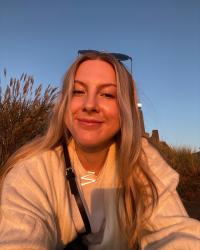
Mackenzie obtained a B.S. in Animal Science from Oregon State University in 2019, followed by an M.S. in Reproductive Science and Medicine from Northwestern University in 2020. During her graduate studies at Northwestern, she studied Notch signaling in ovarian granulosa cells under Dr. Pamela Monahan. Upon graduating, she joined the Division of Developmental and Reproductive Sciences at the Oregon National Primate Research Center in the lab of Dr. Leo Han to characterize the mucosal environment of the non-human primate endocervix, optimize methods of sperm cryopreservation, and also manage pre-clinical reversible and permanent contraceptive device development in a non-human primate model. Her previous work and passion for women’s health and interest in disease immunology led to her joining the Roan lab in 2024, where she aims to characterize the role of endometrial and decidual lymphocytes in female fertility and infertility. Outside of the lab, you’ll find her with her nose in a novel, exploring San Francisco’s beautiful parks, and combing through thrift and vintage stores.

Harnoor obtained a B.S. in Molecular Biology from San Jose State University. During undergraduate studies, she worked in the lab of Dr. Bree Grillo-Hill, where she studied how changes in intracellular pH regulate the timing of cell cycle progression during epithelial development. She then obtained a CIRM-funded M.S. at UCSF, where under the guidance of Drs. Diane Barber and Todd Nystul using Drosophila follicle and mouse embryonic stem cells she tested how intracellular pH can regulate cell fate decisions. Harnoor came into the BMS program wanting to learn about immunology and infectious disease, which is what led to her joining the Roan lab in 2024. In the lab, she aims to characterize the role of accessory genes in HIV pathogenesis and persistence. In her free time, it is only natural she is rooting for the best teams, which are the Warriors, 49ers, and the Giants, of course. Aside from sports, Harnoor is a coffee connoisseur who enjoys trying new coffee places.
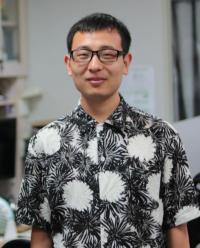
Kailin obtained a B.S. from Peking University, where he majored in molecular biology and biochemistry. He then obtained a Ph.D. from Peking University in the lab of Dr. Wang Yuedan, where he studied tumor-associated antigens. He then conducted a postdoctoral fellowship in the lab of Dr. Chengqi Yi, during which he conducted research on RNA epigenetics. In 2020, he joined the lab of Dr. Wang Likun at the Institute of Biophysics researching endoplasmic reticulum stress using ribosome profiling. In 2021, he joined the Roan lab, where he will be characterizing immune responses to HIV and SARS-CoV-2. Outside the lab, Kailin enjoys playing badminton and computer games like Dota2.

Monet obtained a B.S. in Molecular and Cellular Biology from Johns Hopkins University in 2022. During her undergraduate studies, she worked in the lab of Dr. Kamena Kostova at the Carnegie Institution for Science to characterize quality control factors involved in ribosome biogenesis and ribosomopathies. During her high school and college years, she also worked in the lab of Dr. Jason Sheltzer at Cold Spring Harbor Laboratory to investigate cancer drug targets used in clinical trials and, when the COVID-19 pandemic hit, pursued an additional project aimed at identifying the effects of smoke exposure on COVID-19 susceptibility and severity. Upon graduating from Johns Hopkins, she matriculated to the MD/PhD program at UCSF. During her time in medical school, she developed an interest in immunology and infectious diseases, which brought her to the Roan Lab in 2024. In the lab, she aims to understand the mechanisms of HIV persistence in tissue compartments by devising novel approaches to target persistent reservoir cells. Outside the lab, Monet is a proud mom of a mini Australian Shepherd, keen weightlifter, and NYT Connections enthusiast.
Former Lab Members
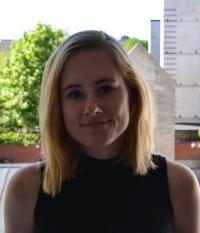
During her PhD studies at Aarhus University, Johanne conducted an internship in the Roan Lab from 2017 - 2018. During this time, she investigated the role of the extracellular matrix in mucosal fibroblast-mediated enhancement of HIV infection. Johanne is currently completing her medical training in Aarhus, Denmark.
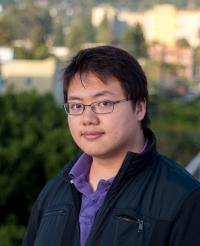
Feng obtained a B.A. from U.C. Berkeley, and during his time in the Roan Lab as an Staff Research Associate, he characterized HIV latency in tissue cells. He then completed medical school at SUNY Upstate in Syracuse.
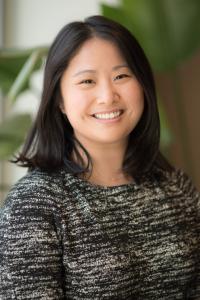
Karen obtained a B.S. from University of Washington, and while in the Roan Lab, she examined how seminal plasma components affect reproductive health, and how HIV infection and ART treatment can affect the composition of seminal plasma and how this in turn may affect viral transmissibility.

Nargis obtained her B.S. from U.C. Davis, and as a Staff Research Associate in the Roan lab she characterized how seminal plasma components signal to spermatozoa and cells of the female reproductive tract.
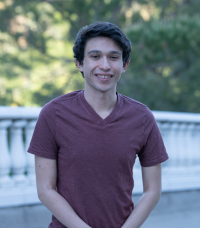
Matthew obtained a B.S in Biology from the University of San Francisco, and while in the Roan Lab as a Staff Research Associate, he participated in projects to investigate COVID-19 and HIV pathogenesis.
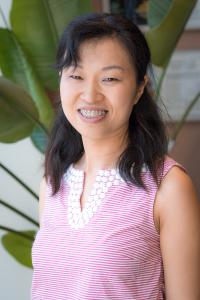
Guorui (Grace) obtained a B.S. in Biotechnology from Shandong Normal University in China, and a Ph.D. from University of Texas Medical Branch. She joined the Roan Lab in 2017 as a postdoctoral fellow to study characterize the mechanisms regulating CD4+ T cell susceptibility to HIV infection. She is currently working at RAPT Therapeutics.
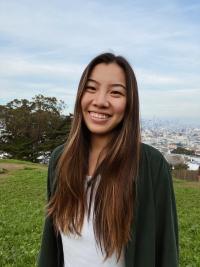
Kyrlia received her B.A. in Biology from Occidental College in Los Angeles. She worked in the Roan Lab as a Staff Research Associate from 2021-2024, during which she primarily worked on a project to characterize endometrial SARS-CoV-2-specific T cell responses in the context of COVID-19 and vaccination. She is currently a PhD candidate in the Molecular and Cellular Biology program at UC Berkeley.

